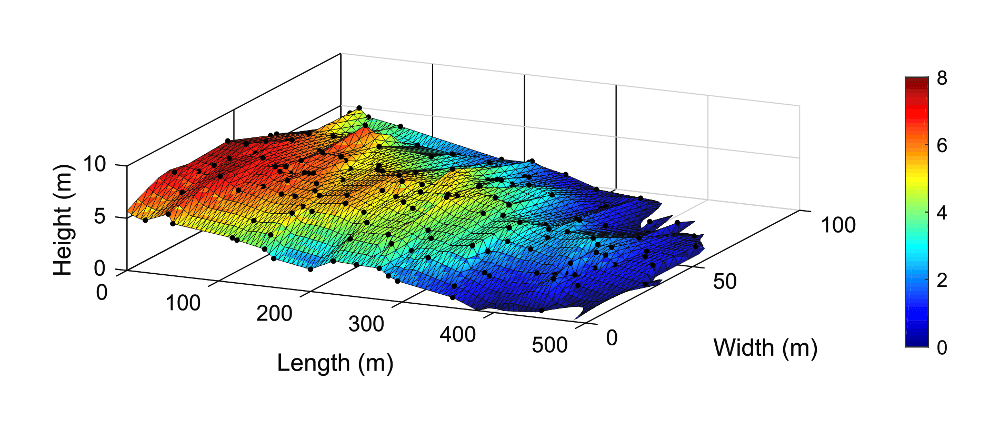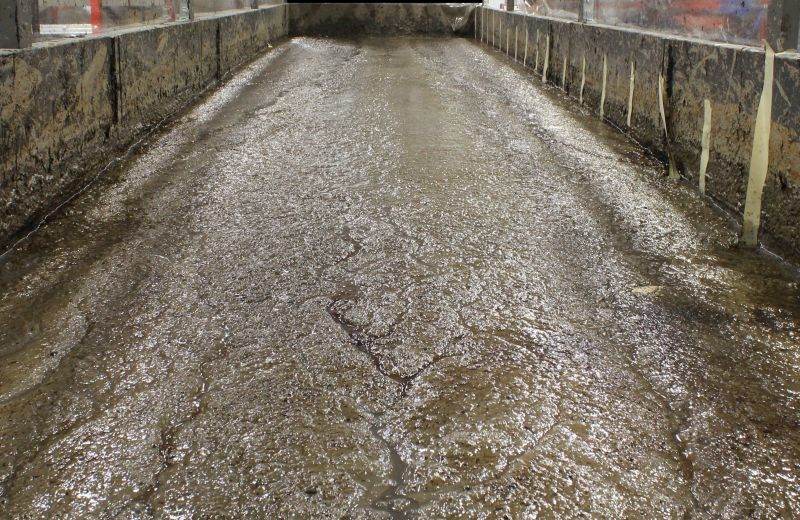Complex Behaviours
Non-Newtonian fluids show up in a wide range of industries, from mining and oil to cosmetics and food. The way these materials flow—their rheology—can differ substantially from simpler Newtonian fluids (e.g., water, air, oils). They can possess shear-dependent or time-dependent properties, elastic behaviour or gel-like properties. These complex rheological properties can lead to distinct and unexpected behaviour in applications and industrial processes involving these materials. Non-Newtonian effects can impact the stability and efficiency, and can even be leveraged to help obtain specific outcomes.
Some examples of materials that can exhibit non-Newtonian characteristics are:
- Cement
- Mud
- Mining tailings
- Lava
- Foams
- Polymer solutions
- Polymer melts
- Shampoo
- Processed foods
- Chocolate
- Blood
- Synovial fluid
custom consistency measurement device
non-Newtonian fluid (paint) on a vibrating surface
Modelling
Coanda has extensive experience working with and modelling non-Newtonian flows from a range of application areas. This experience means we can quickly determine which aspects of the rheology are most relevant for the physical setup in question and identify the most likely scenarios in which issues may arise. We can then develop a customized research program suited to our client’s specific needs. We use a combination of analytical modelling, physical experiments, and computational fluid dynamics to gain a better understanding of flow behaviours and to provide the desired level of understanding for a certain flow scenario. We have worked with a wide range of non-Newtonian fluids in our laboratory—viscoplastic, viscoelastic, power-law, time-dependent, shear-history-dependent—and when necessary can even use custom analogue fluids when the actual materials are costly or difficult to obtain.

Field deposit profiling
Characterization
When working with non-Newtonian materials it is important to have an understanding of the material rheology. Coanda’s lab is equipped with state of the art rheometric instruments, and we can perform detailed rheological characterization on a wide range of non-Newtonian materials. In addition, we have helped to develop diagnostics and simple characterization techniques that can be easily implemented in commercial applications or in the field for process monitoring and/or control.

one of Coanda’s deposit flumes
Computational Simulations
Non-Newtonian flows can be challenging to simulate accurately with computational fluid dynamics (CFD) as the constitutive equations for the fluids can be quite complex and lead to a degenerate system of equations. Inappropriate numerical approximations for these equations can results in misleading simulations results. Coanda has extensive experience conducting CFD simulations involving non-Newtonian fluids. Our CFD simulations are often validated against physical experiments conducted in our laboratory, and as such we have developed a collection of computational methodologies for a range of different non-Newtonian flow scenarios.

